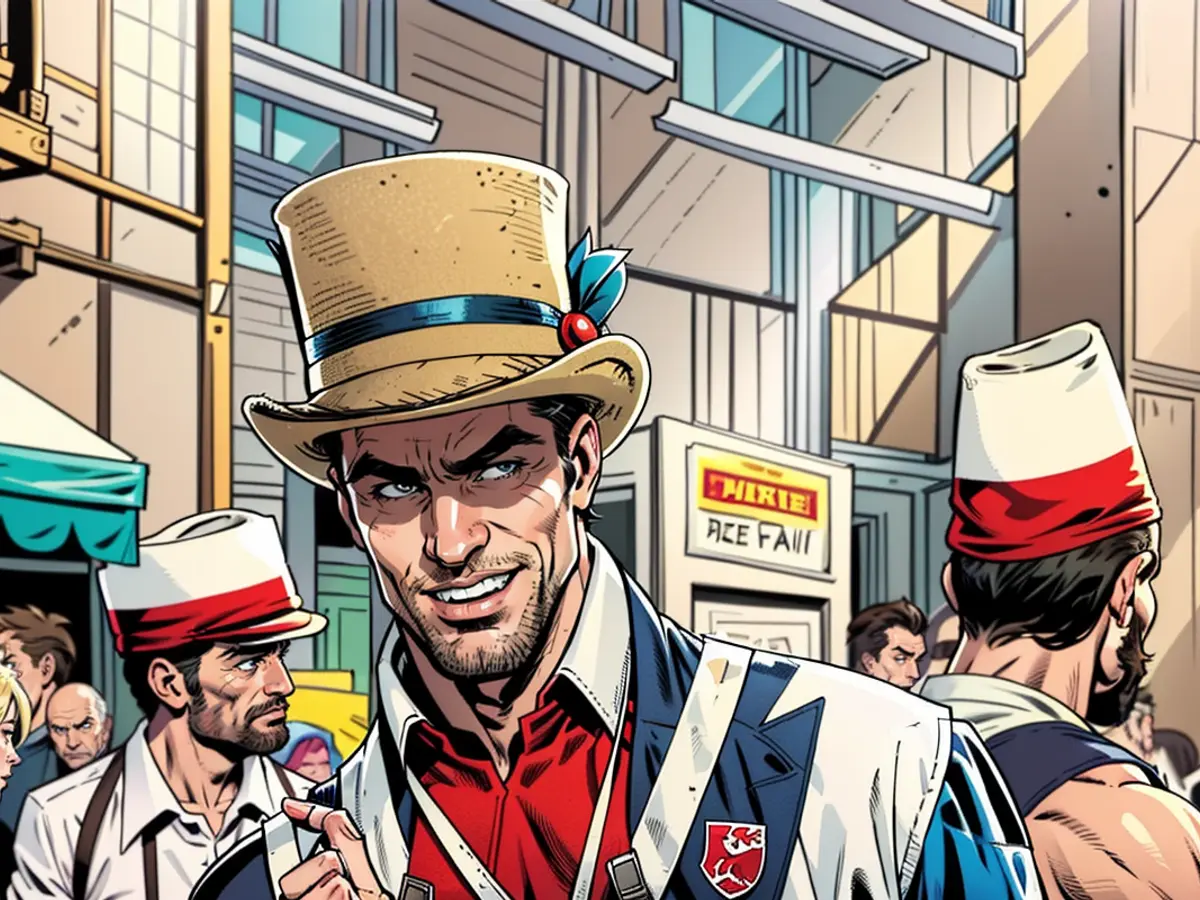Hendrik Wüst pursues Dr. No
The European election has led to significant changes in the political landscape, with France seeing an explosion and Germany experiencing shock, albeit temporarily. It's essential to understand the future of these power shifts through various egg dishes.
The European election was initially seen as inconsequential, but as soon as the voting began, Emmanuel Macron shattered the French parliament. In Germany, the Bundestag is still standing, but parties are reorganizing after the shock from the right. Some are nursing their wounds, while others are positioning themselves. It's like cracks have appeared in political eggs, and now we're scrambling for a recipe.
For the AfD, it's a farmer's breakfast: Their strategy is to focus on potatoes, and they enjoy the support of the rural population. Why not? Rural areas have higher concentrations of immigrants, fewer street lights, limited public transportation options, and a notable lack of healthcare. Rural communities offer an opportunity for people to identify more easily with the party given their prejudices against Berlin.
For the FDP, it's a sunny side up situation: The outcome was acceptable, but their journey at the Bundestag may not be smooth as they must overcome the five-percent hurdle. The search for allies complicates matters, since the Federation of German Industries has requested a special fund. The Liberals find themselves in the CDU's shadow, and Christian Lindner is now leaning on the CDU Economic Council and Theodor-Weimer videos until he runs out of fuel to reach more than 5 percent.
After a devastating defeat, SPD candidate Katarina Barley wants a coveted European position: Vice President of the European Parliament. However, this has caused widespread disapproval among the public, and she reassured them with this statement: "That is a separate political area where its own laws apply." Barley's actions are similar to throwing hard-boiled eggs at the voters.
Greens have nothing left but a thin thread of Ruhrerei (a German dish) at most. If you listen to their self-analysis, there's no hope for recovery. Communication is the focus, according to a paper from the Böll Foundation, a green-oriented organization. But no one listens to him anymore.
Strong and Intimidating
The Conservatives present themselves as desirable, or "Strammer Max": They're too strong. Friedrich Merz is at the helm of a united Union, and even Markus Söder is holding back due to some scandals at the moment.
However, there's a complication: Wust. Wust? That's the head of the formidable North Rhine-Westphalia state association and Minister-President of the state, leading the harmless black-green coalition. Hendrik Wust smiled at cameras with baby carriages before, but now he holds a whip.
Wust is pursuing Dr. No! Wust executes it flawlessly: He calls the Chancellor to negotiate with the Taliban to bring Afghans out of the country. It's a challenging task (the Taliban are radical Islamists), but it's necessary "to prevent our society from tearing apart because people don't understand it." Order and control on the subject of migration are "a last resort," says Olaf Scholz.
Whip and Sugar Cake
Wust is chasing Dr. No! Wust does it masterfully: He quickly congratulates the same Chancellor on her birthday, leaving Merz behind, and he does so with a lovely photo. With the whip comes the sugar cake - and Wust knows, he might one day have to form a Grand Coalition with whom?
Wust, showcasing strong credentials: When Friedrich Merz declines cooperation with the BSW, Wust publicly supports himself. For the east and the west, a "Unity Treaty 2.0" is needed, he tells Redaktionsnetzwerk Deutschland. "2.0" is an old version, but the people understand it. Young people should be able to travel between regions and back freely, Wust proposes, as this "opens perspectives for more understanding among each other."
Wust knows the power that comes with that title: "Chancellor of Unity" in the making, possibly. CDU Chancellor neuroses have toyed with Wust for a long time: After all, it was Wust who, with a guest article in the FAZ, provoked Friedrich Merz. With a guest article in the FAZ, Angela Merkel had once dismissed Helmut Kohl.
To ensure that everyone comprehends, the "Welt" mentions what Wust has been conveying repeatedly: "Hendrik Wust is now making his way onto the political scene at the federal level"! The press often mention this about a politician when someone from their inner circle comments, "Look, he's making his way onto the federal level."
Currently, there's someone on the stage who has a firm grip. In Wuest's recent assault, Friedrich Merz made a petty remark in front of the camera in reaction. Now he can show that he's "bulletproof," or unruffled by every commotion. After all: The Union isn't just snickering at Laschet due to his giggles, but also about the men's dispute Merz/Söder in the opposition.
(If you, dear reader, are wondering about the origin of the nickname "Strammer Max," you'll immediately understand how well this metaphor fits.)
Read also:
- In the political landscape of Europe, Katarina Barley, the SPD's candidate who suffered a defeat, is aiming for a prominent position, aiming to become the Vice President of the European Parliament. This move, however, has faced criticism from the public.
- Following the European elections, Hendrik Wüst, the Minister-President of North Rhine-Westphalia, has become a significant figure in German politics. He has been actively pursuing a contentious negotiation with the Taliban to bring Afghans out of their country, a task considered challenging due to the Taliban's radical Islamist beliefs.
- The Federal election in 2025 might feature a potential Grand Coalition, as Hendrik Wüst, a rising political figure, has expressed support for unity between the east and the west of Germany, proposing a "Unity Treaty 2.5" to allow young people to travel freely between regions.








